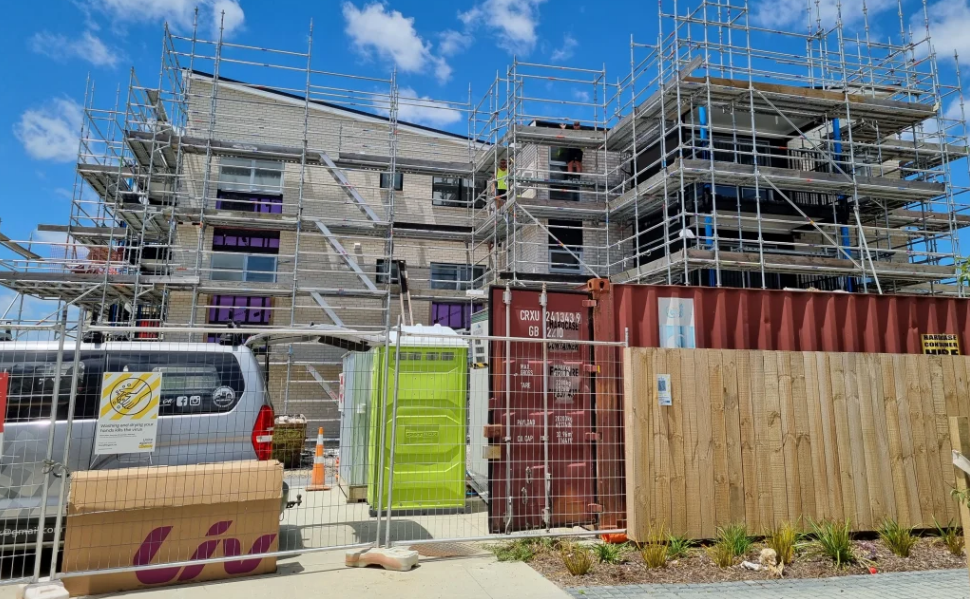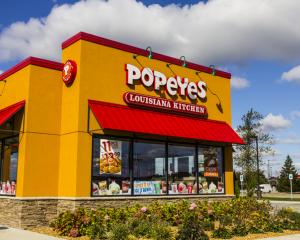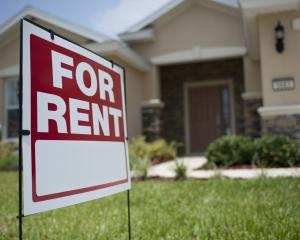The building industry is welcoming the move to be able to access overseas building products with fewer roadblocks.
Building and Construction Minister Chris Penk has proposed legislative changes in a bid to help lower the cost of building in New Zealand. He said trusted overseas standards for building products would be recognised, instead of making builders go through the lengthy process of verifying materials.
Building consent authorities will also be required to accept the use of overseas products that comply with the equivalent local standards.
EasyBuild co-founder Michael Fox said his system was like the "Ikea of the building industry", putting the materials needed to construct a home: frame, wall panels, windows all flat-packed into a container crate so it could be quickly constructed by a pair of semi-skilled labourers.
"Only thing you don't get is your floor coverings, your electrical wiring ... and your plumbing which goes behind the wall," Fox said. "We're like the Toyota Corolla of the housing industry, so we're producing lots of houses that are similar but they can be customised to actually make them a little bit unique.
"What New Zealand needs to understand ... is that we need a two-tier building industry. One where you can buy houses at a price point that are efficient, economical and can produce quickly - and then if you want your own bespoke house then you can have one, but then you pay a premium for that."
The changes from the government were a "really good first step" for making it easier to build homes, he said.
"Coupled with freeing up the supply chain so that when these new products can come in they are actually freely stocked within the existing supply chains.
"If they close ranks and the merchants don't, say, support products coming in from overseas, then we won't get much change - but this first step is a very good thing the government has done."
He said the changes were an important piece to the puzzle for boosting productivity.

'Risk of fraudulent activity'
Building Industry Federation chief executive Julien Leys welcomed the move but said it was important to ensure overseas standards were in line with New Zealand's Building Act to avoid phoney products entering the market.
"There is an international standards framework around the world. There's risk of fraudulent activity anywhere, but if we think of what some manufacturers do, and Apple is a good one - they design and develop, and get everything made in China so they control the whole quality control process," Leys told RNZ's Midday Report programme today.
As long as overseas manufacturers had quality-controlled processes and were certified to match New Zealand standards, there should not be a problem, he believed.
"It's just making sure standards are in conformity with our Building Act. I think it's a good thing in general, and it will make it a lot easier to bring in a wider range of products into this market."
The move would lower building costs over time, but it would depend on the time it would take to implement the changes. The construction sector had been consulted before these changes were announced, Leys said.
Labour warns of repeat of leaky homes saga
Labour building and construction spokesperson Arena Williams said she was interested to see the advice the government received "on how products like plasterboard, which are used in a structurally different way in other countries, would be used here".
"What's vital when doing anything in this space is taking the time to get it right. We don't want a repeat of the leaky homes saga." she said.
"We also don't want to cut innovative New Zealand companies out of the market, like Hamilton start-up SaveBoard made from recycled waste that is a recognised plasterboard substitution in our domestic market.
"So we will be keeping a close eye on those things."














